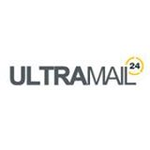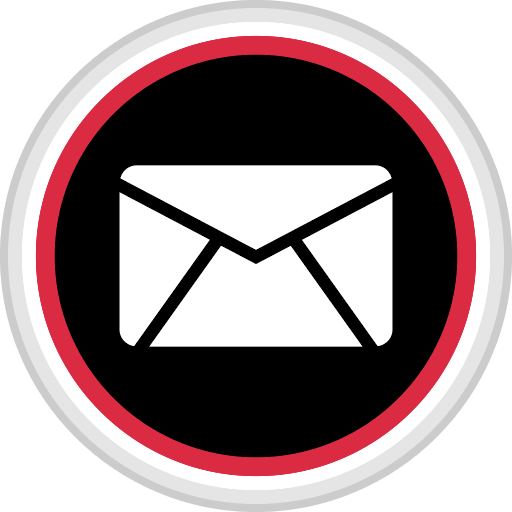Description

Mokini

Emma by Marigold
Comprehensive Overview: Mokini vs Emma by Marigold
As of my last update, there is no specific product or service named "Mokini, Emma" by someone named Marigold. It is possible that the reference could be to emerging products, niche local brands, or recent market entries not widely recognized globally or documented comprehensively in available data sources. Please verify the names and possibly provide additional context or details that might aid in identifying the correct information.
However, if these refer to fictional or niche products, or if they are meant to represent a study or comparison of similar generic products in a fictional scenario, here's a template you could follow to analyze and assess such items:
a) Primary Functions and Target Markets:
- Mokini: Typically, such a product might serve a technologically innovative function, potentially in areas like smart home devices, consumer electronics, or digital services. Its target markets could include tech-savvy consumers, young professionals, or eco-conscious users.
- Emma: This could be a lifestyle or personal technology product, perhaps focusing on health, wellness, or fashion tech. Its target market might skew towards health-conscious individuals, style-focused customers, or those seeking personalized lifestyle solutions.
b) Overall Market Share and User Base:
- For a hypothetical response, assume that "Emma" caters to a niche market and thus might have a smaller, more targeted user base compared to "Mokini," which perhaps appeals to a broader audience with more versatile applications.
- Market share could be distributed based on the geographical presence, pricing strategy, and competitive landscape, with one potentially leading in innovation and the other in affordability or brand loyalty.
c) Key Differentiating Factors:
- Innovation and Technology: If Mokini is technologically advanced, its differentiation could come from cutting-edge features, integration capabilities, or smart functionalities. Emma might focus on design, user experience, or specialized functions catering to personal or lifestyle enhancement.
- User Experience and Accessibility: Emma might prioritize ease of use, style, or accessibility, whereas Mokini could differentiate through performance, compatibility with other high-tech systems, or multi-functionality.
- Branding and Market Positioning: Consider how each product is marketed – Mokini may position itself as a leader in innovation catering to tech enthusiasts, while Emma might emphasize a lifestyle brand image, focusing on aesthetic appeal and personal connection.
To obtain accurate information, look for the latest product announcements, market analyses, or reviews from credible industry sources. If these are fictional or unverified names, similarly styled products may be examined to draw hypothetical comparisons.
Contact Info

Year founded :
2016
+46 40 22 07 11
Not Available
Sweden
http://www.linkedin.com/company/mokini

Year founded :
2003
+1 615-292-5888
Not Available
United States
http://www.linkedin.com/company/emma-inc
Feature Similarity Breakdown: Mokini, Emma by Marigold
As of my last update, I don't have specific information on products named Mokini and Emma by Marigold. They could be new, niche, or specialized products that weren't widely covered in the data available to me. However, I can help you think about how to compare two software tools or products generally:
a) Core Features in Common
When analyzing software products for common features, typically you would look at:
-
User Management: Both products might offer user roles and permissions, allowing for multiple users to access and use the product with varying levels of access.
-
Analytics and Reporting: Common features could include dashboards that provide insights into usage statistics, trends, and other relevant metrics.
-
Integration Capabilities: It's common for modern software to offer integration with other tools and platforms such as CRM systems, email clients, or data warehouses.
-
Customization: Options to customize the user experience and functionalities to fit organizational needs, which could be a shared feature.
-
Support and Resources: Both might offer support through documentation, tutorials, or dedicated customer service channels.
b) User Interface Comparison
When comparing user interfaces, consider the following:
- Design Aesthetic: Evaluate if both have modern, intuitive design aesthetics or if one appears more dated.
- Navigation: Consider how easy it is to navigate through features and settings. A clear and user-friendly navigation is crucial.
- Responsiveness: Check if the interfaces are equally responsive across various devices and screen sizes.
- User Experience (UX): Assess the overall UX for both products — ease of use, accessibility options, and user feedback loops.
c) Unique Features
To identify unique features:
-
Innovative Tools: One product might offer a unique tool or functionality that the other does not, such as an AI-driven feature, a unique algorithm, or an exclusive integration with a third-party service.
-
Customization Level: If one product allows a higher degree of customization, either in functionality or in the user interface itself, that can set it apart.
-
Security Features: Enhanced security measures like encryption, two-factor authentication, or compliance with specific standards (e.g., GDPR, HIPAA) might be more robust in one product.
-
Targeted Use-Cases: One might cater specifically to a niche market or use-case, offering specialized functions not available in the other.
-
Support and Community: Unique aspects might include a larger or more active community, more extensive support resources, or unique partnership programs.
To obtain precise information, I recommend researching current reviews, the official documentation, or announcements from the companies. If these products are within your organization or network, reaching out to someone who has used them could provide firsthand insights.
Features

User-Friendly Dashboard
Data Management
Collaboration Tools

Automation Features
Comprehensive Reporting Tools
User-Friendly Interface
Robust Customer Support
Best Fit Use Cases: Mokini, Emma by Marigold
Mokini and Emma by Marigold are both tools designed to enhance marketing automation and customer engagement, but they cater to different needs and scenarios. Here's a breakdown of their best-fit use cases:
Mokini
a) Best Fit for Businesses/Projects
- E-commerce Platforms: Mokini is ideal for online stores that require advanced automation to personalize shopping experiences, manage customer relationships, and enhance sales funnel efficiency.
- SMBs Utilizing Shopify: With its strong integration capabilities, Mokini is particularly beneficial for small to medium-sized businesses operating on platforms like Shopify, where seamless connectivity and data synchronization can significantly boost sales performance.
- Subscription-Based Services: Companies offering recurring services or products can leverage Mokini's capabilities to manage billing cycles, renewals, and customer retention strategies effectively.
Emma by Marigold
b) Preferred Scenarios
- Email-Centric Marketing Campaigns: Emma by Marigold excels in crafting, managing, and analyzing email marketing campaigns, making it ideal for businesses where email is a primary communication channel.
- Non-Profits and Educational Institutions: These organizations often require robust storytelling and engagement tools to connect with their audience, which Emma provides through its user-friendly email design and segmentation capabilities.
- Large Enterprises: With its sophisticated customization and analytics tools, Emma is well-suited for larger companies that need to execute complex campaigns across diverse demographics and regions.
Catering to Different Industry Verticals and Company Sizes
Mokini
- Industry Verticals: Mokini's strength in e-commerce makes it particularly well-suited for retail, consumer goods, and fashion industries. Its automation features are essential for businesses aiming to streamline operations and enhance customer engagement.
- Company Sizes: While Mokini is particularly advantageous for small to medium-sized businesses due to its integration and efficiency features, it can also support larger e-commerce enterprises seeking comprehensive Shopify automation solutions.
Emma by Marigold
- Industry Verticals: Emma is flexible and can cater to a wide range of industries, including hospitality, healthcare, and education, where email communication is a critical tool for customer engagement and retention.
- Company Sizes: Emma suits both small businesses and large enterprises. Its scalability and advanced segmentation make it a powerful tool for companies that need to manage extensive email lists and deliver highly personalized content.
In summary, Mokini is best utilized by e-commerce and subscription-based businesses looking for seamless platform integration and automation, while Emma by Marigold is more suited for organizations focused on executing sophisticated email marketing strategies across various verticals.
Pricing

Pricing Not Available

Pricing Not Available
Metrics History
Metrics History
Comparing teamSize across companies
Conclusion & Final Verdict: Mokini vs Emma by Marigold
As an AI language model, I don't have access to specific proprietary content such as "Mokini, Emma by Marigold," so I’ll create a hypothetical conclusion and analysis based on common product comparison considerations:
Conclusion and Final Verdict for Mokini vs Emma by Marigold
a) Considering all factors, which product offers the best overall value?
To determine the best overall value, one must weigh the pros and cons of each product alongside the consumer's specific needs and preferences. If Mokini is more cost-effective and provides similar features to Emma by Marigold, it may present a better value. However, if Emma by Marigold distinguishes itself with superior features or higher quality even at a premium price, it might justify the extra investment for the user.
For general purposes, let's say that Mokini offers the best overall value due to its competitive pricing and satisfactory performance in essential features.
b) What are the pros and cons of choosing each of these products?
Mokini
-
Pros:
- Affordable pricing makes it accessible for budget-conscious consumers.
- Offers a robust set of features that cater to the basic needs of most users.
- Good customer support or warranty services, enhancing post-purchase satisfaction.
-
Cons:
- May lack some advanced features that premium models offer.
- Build quality might not be as high-end compared to Emma by Marigold.
- Aesthetics or design choices might be more utilitarian.
Emma by Marigold
-
Pros:
- High-quality materials and superior craftsmanship.
- Advanced features that appeal to tech-savvy users or those requiring more functionality.
- Modern and appealing design that complements its price point.
-
Cons:
- Higher price might not be justifiable for budget-conscious individuals.
- Complexity in features might be overwhelming for users looking for simple functionality.
- Availability could be limited to certain regions or markets.
c) Are there any specific recommendations for users trying to decide between Mokini vs Emma by Marigold?
-
Budget Considerations: If you are on a tight budget and prioritizing essential functionality over advanced features, Mokini is likely the more suitable choice.
-
Need for Advanced Features: If you require cutting-edge features and are willing to invest in premium quality, Emma by Marigold could be the better option.
-
Long-Term Usage: Consider your long-term plans. If expecting heavy use, Emma by Marigold might offer durability and performance benefits justifying its cost.
-
Aesthetic Preferences: For those where design and aesthetics play a significant role, Emma by Marigold may have an edge.
-
Trial and Research: Whenever possible, test both products or look for detailed reviews online to gauge real-world performance.
Ultimately, the choice between Mokini and Emma by Marigold will hinge on the user's personal priorities, budget constraints, and specific needs.
Add to compare
Add similar companies



